Whither Afghanistan?
Difficult times lie ahead for Afghanistan and unfortunately for its neighbour Pakistan about which, more later.
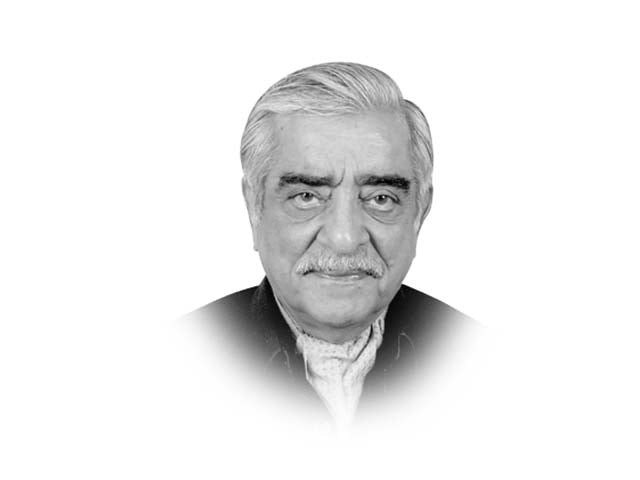
The shooting down in Tangil Valley on the border of Wardak and Logar of the Chinook helicopter and the loss in that incident of some 25 Special Operation Forces of whom some 22 belonged to the same SEAL unit that had carried out the raid in Abbotabad would have merited attention in any case because of the magnitude of the disaster. It has received even greater attention since it seemed to show the senselessness of losing even more lives and treasure in a venture that has little chance of success.
The administration spokespersons have been at pains to establish that this is not how the tragedy should be interpreted. It has been acknowledged that a Taliban-fired rocket-propelled grenade (RPG) probably brought down the helicopter but this, it was said, was a “lucky shot” and did not mean that the Taliban had acquired new capabilities or new weapons systems. It has been claimed that the Talib who fired the RPG has been tracked down and killed without specifying how his identity was established. Clearly the idea was to establish both to the American public and to the Afghans that the Americans were capable of wreaking vengeance and would expend whatever effort was need for this purpose. It echoed in a minor way the statements that were made after the Bin Laden raid and reinforced the message that the American military machine does not forget and does not forgive.
A wealth of material has appeared in the aftermath of the incident on the role that the Special Operation Forces have played in Afghanistan and what is expected of them in the future. First the Special Operation Forces (SOF) former commander Admiral Eric T Olson, disclosed that SOF carried out “somewhere between 3,000 and 4,000 operations” in 2010 alone. Second, while there will be a reduction in American forces in the next few months no special forces are likely to be withdrawn and they will therefore become a larger ratio of American forces remaining in Afghanistan than the present 10 per cent. They will be tasked to both carry out counter-insurgency operations and the training of Afghan forces. Third, the plan for the moment calls for the maintenance of a significant foreign military presence, largely American, after the 2014 deadline for the handing over of security responsibilities to the Afghan Security forces passes. Four, the Tangi Valley area, a scant 60 miles from Kabul, was handed over to Afghan Security forces earlier this year. The extent to which the Taliban were able thereafter to control the area provided further evidence that the Afghan Security forces are unable to handle this responsibility and will need assistance well beyond 2014.
The Taliban spokesman Zabiullah Mujahid has claimed that the shooting down of the helicopter “shows that our efforts are unstoppable”. He, of course, is also the man who has consistently rejected reports of the Taliban’s willingness to negotiate reconciliation. Other reports appearing during this period suggest that the Americans have now lost touch with Tayab Agha, the so-called Mullah Omar confidante with whom the Americans are said to have held some talks about talks. Yet other reports assert that the 70-member High Peace Council chaired by Mullah Rabbani has met with everyone around the world but not with the Taliban leaders. Some corroboration of this was offered by the Afghan deputy foreign minister when at the ‘core group’ meeting in Islamabad recently he virtually pleaded with his Pakistani counterpart to help the Afghan government to establish contact with the Taliban leadership. Reconciliation, therefore, appears to be going nowhere.
The ‘civilian surge’ which theoretically was going to bring economic development and win the hearts and minds of Afghans has floundered right from the start. Only some 300 of the 1,000 civilians sent into Afghanistan have moved out of Kabul and even these 300 have had limited success in moving beyond the constraints that security concerns and military operations have placed on their activities. Investigative reports by official American agencies and other NGO bodies such as the International Crisis Group have established conclusively that much of the aid disbursed in Afghanistan has been wasted or has created projects that the Afghans will not be able to sustain. While the right noises are being made it appears unlikely that the situation will improve in the near future.
In the meanwhile, charges of corruption and nepotism abound. Action against the perpetrators of the Kabul Bank fraud has yet to be taken in a meaningful way and a lot of aid to Afghanistan will remain suspended until this problem is resolved.
Karzai has now apparently agreed to disband the court he had set up to investigate fraud in the parliamentary elections and has apparently agreed that only the Independent Election Commission (IEC) has the right to determine the results of the elections. The IEC has reportedly agreed in turn to examine the evidence collected by the court and to see on this basis whether some results need to be changed. The court had, it may be recalled, disqualified 62 members of parliament. Relations between Karzai and the parliament, however, remain tense.
Above all, it seems that opposition among the ethnic minorities to Karzai’s call for reconciliation with the Taliban is growing and, according to reliable reports, the Tajiks and Hazaras are rearming in preparation for ethnic conflict.
Difficult times lie ahead for Afghanistan and unfortunately for its neighbour Pakistan about which, more later.
Published in The Express Tribune, August 15th, 2011.

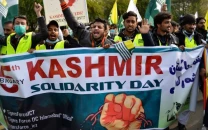

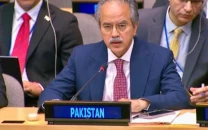
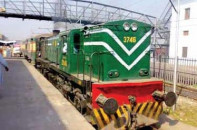

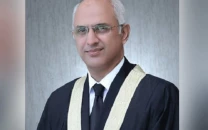












COMMENTS
Comments are moderated and generally will be posted if they are on-topic and not abusive.
For more information, please see our Comments FAQ